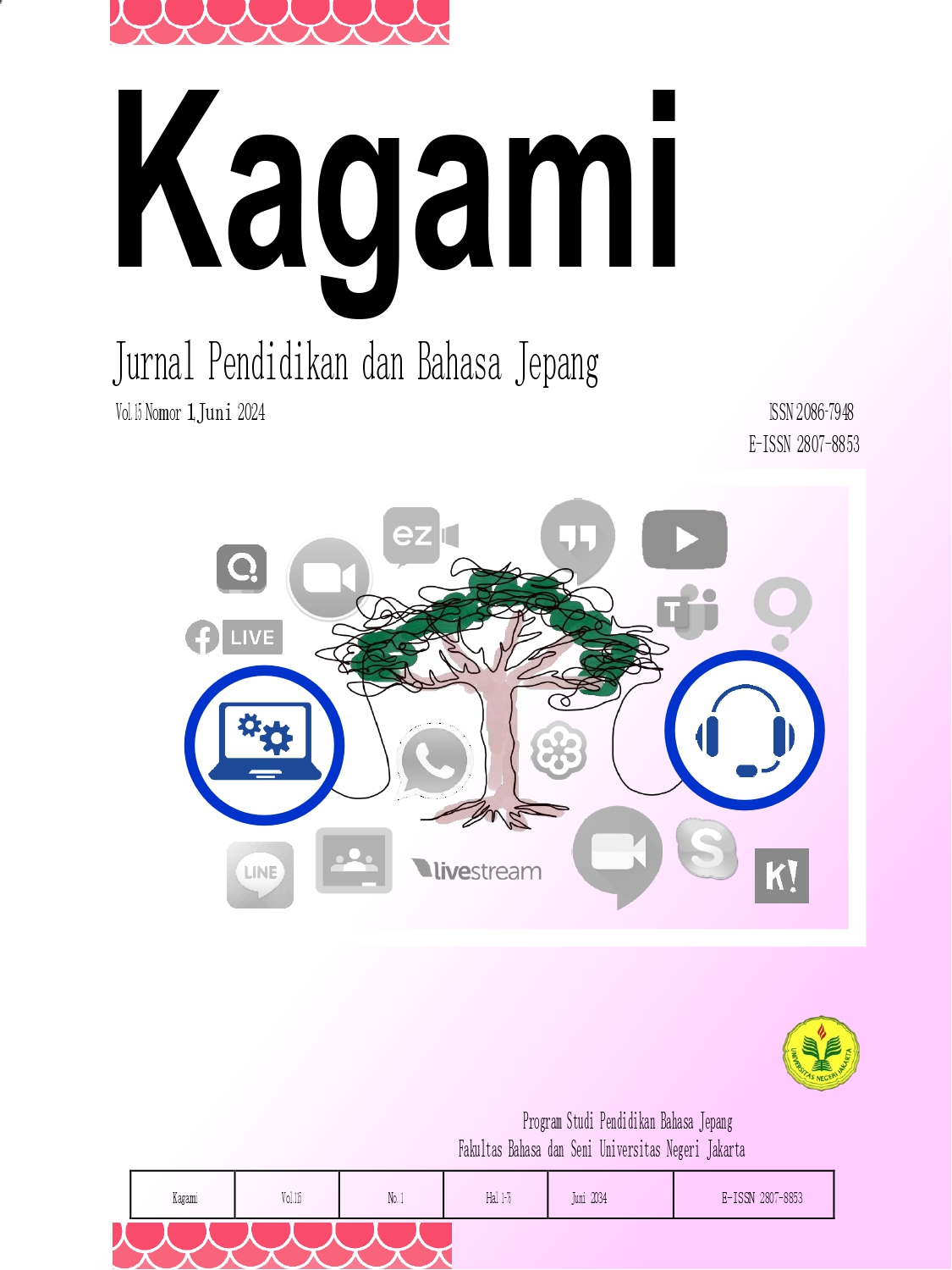EVALUASI PELAKSANAAN PROGRAM INTERNSHIP PRODI PENDIDIKAN BAHASA JEPANG UNIVERSITAS NEGERI JAKARTA MENGGUNAKAN MODEL CONTEXT INPUT PROCESS PRODUCT
DOI:
https://doi.org/10.21009/kagami.151.05Keywords:
Evaluation CIPP Model, , Internship Program, Japanese Language Education, MBKM InternshipAbstract
This research is to determine the suitability of the internship program that has been running at the Japanese Language Education Study Program, Jakarta State University with the MBKM principles, and responses from students who have taken part in the internship program to Japan regarding the implementation of the program. The research method in this study is descriptive qualitative using the CIPP evaluation model. Data collection techniques include interviews and questionnaires. The sample in this study consisted of 15 people from the class of 2015 to the class of 2021.The results of interviews with the Lecturer in Charge of the Internship Program, it was said that 80% complied with the MBKM program guidelines. Meanwhile, from the results of questionnaire data with students, it was concluded that the internship program to Japan had a significant and positive impact on the development of students' skills and careers. This program successfully improves Japanese language skills, provides insight into the Japanese work ethic, and provides valuable experience that helps students find work in Indonesia. However, some aspects of this program still need improvement. Problems reported by students, such as pay discrepancies and poor treatment from some companies, show that continuous evaluation and improvement is necessary.
References
Hardani, Andrian. H., Ustiawaty, J., & F. U, E. (2020). Metode Penelitian Kualitatif & Kuantitatif. Yogyakarta: CV. Pustaka Ilmu.
Indonesia, R. (2013). Undang-undang No. 13 Tahun 2013 tentang. Ketenagakerjaan.
Indonesia, R. (2003). Undang-undang No. 20 Tahun 2003 tentang. Sistem Pendidikan Nasional.
Kemdikbudristek. (2021). Kampus Mengajar. Diakses pada 1 Mei 2024, dari website https://kampusmerdeka.kemdikbud.go.id/
Moleong, L. J. (2002). Metodologi Penelitian Kualitatif. Bandung: PT. Remaja Rosdakarya.
Sakai, O. (2015). Intaanshippu Puroguramu no Kyouiku Kouka: Shokugyou-kan. https://doi.org/10.15002/00010737
Stufflebeam, D. L. (2000). The CIPP Model for Evaluation. In: Stufflebeam, D.L., Madaus, G.F., Kellaghan, T. (eds) Evaluation Models. Evaluation in Education and Human Services, vol 49. Springer, Dordrecht. https://doi.org/10.1007/0-306-47559-6_16
Sugiyono. (2013). Metode Penelitian Kuantitatif, Kualitatif, dan R&D. Bandung: Alfabeta.
Sumardiono. (2014). Apa Itu Homeschooling. Jakarta: PT. Gramedia.
Tetsuya, M. (2015). Intaanshippu no Igi to “Shakaijin Kisoryoku”. Sougou Seisaku Ronsou, 30, 49 – 63. https://ushimane.repo.nii.ac.jp/records/1494

Downloads
Published
Issue
Section
License
Copyright (c) 2024 Safana Qanita Zulfa, Yuniarsih, Eva Jeniar Noverisa

This work is licensed under a Creative Commons Attribution 4.0 International License.




